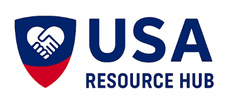Tax season can feel overwhelming, especially if your income is limited and you’re unsure what benefits apply to you. But here’s the good news: even if you earn a modest income, you may still qualify for valuable tax credits that reduce your tax bill or increase your refund. Some credits are refundable, which means you can receive money back even if you owe nothing in taxes.
Whether you’re working part-time, self-employed, or supporting a family on a tight budget, these tax credits are worth exploring before you file.
1. Earned Income Tax Credit (EITC)
The EITC is one of the most powerful credits available to low- and moderate-income workers. It’s refundable, which means you could receive a refund even if you don’t owe any taxes.
To qualify, you must have earned income from wages, self-employment, or tips. The amount you receive depends on your income, filing status, and number of qualifying children. For tax year 2024, the maximum credit ranges from:
- Up to $632 with no children
- Up to $4,213 with one child
- Up to $6,960 with two children
- Up to $7,830 with three or more children
Even if you’re self-employed, temporarily unemployed, or working part-time, you may still qualify. Many eligible taxpayers miss out simply because they assume they don’t meet the criteria.
2. Child Tax Credit (CTC)
If you have children under age 17, you may qualify for the Child Tax Credit. This credit is partially refundable and can reduce your tax liability significantly. For each qualifying child, you could receive up to $2,000, depending on your income and filing status.
To qualify, your child must:
- Be under age 17
- Have a valid Social Security number
- Be claimed as a dependent
- Live with you for more than half the year
Even if your income is low, you may still receive a portion of the credit as a refund through the Additional Child Tax Credit.
3. Child and Dependent Care Credit
If you paid someone to care for your child, spouse, or dependent while you worked or looked for work, you may qualify for this credit. It’s designed to offset the cost of daycare, after-school programs, or in-home care.
The credit covers a percentage of qualifying expenses, up to:
- $3,000 for one dependent
- $6,000 for two or more dependents
Eligibility is based on income, but even low-income households can benefit. You must have earned income and the care must have been necessary for you to work or seek employment.
4. Saver’s Credit
If you contributed to a retirement account like a 401(k) or IRA, you might qualify for the Saver’s Credit. This credit encourages low- and moderate-income workers to save for retirement by offering a credit of up to $1,000 ($2,000 for married couples).
To qualify, you must:
- Be age 18 or older
- Not be a full-time student
- Not be claimed as a dependent
- Meet income limits based on filing status
Even small contributions to a retirement account can make you eligible, and the credit directly reduces your tax bill.
5. Premium Tax Credit (PTC)
If you purchased health insurance through the Affordable Care Act marketplace, you may qualify for the Premium Tax Credit. This credit helps cover the cost of monthly premiums and is based on your income and household size.
You must have enrolled in a marketplace plan and meet income guidelines. The credit can be applied in advance to lower your monthly payments or claimed when you file your taxes.
6. American Opportunity Tax Credit (AOTC)
If you or a dependent is enrolled in college, you may qualify for the AOTC. This credit offers up to $2,500 per student for tuition, fees, and course materials during the first four years of higher education.
It’s partially refundable and available even to low-income students. You must be enrolled at least half-time and meet income limits to qualify.
Tax credits can make a big difference for low-income households. They reduce your tax liability, increase your refund, and help you keep more of your earnings. Even if you’re not required to file taxes, doing so may allow you to claim refundable credits and receive money back.


Leave a Reply